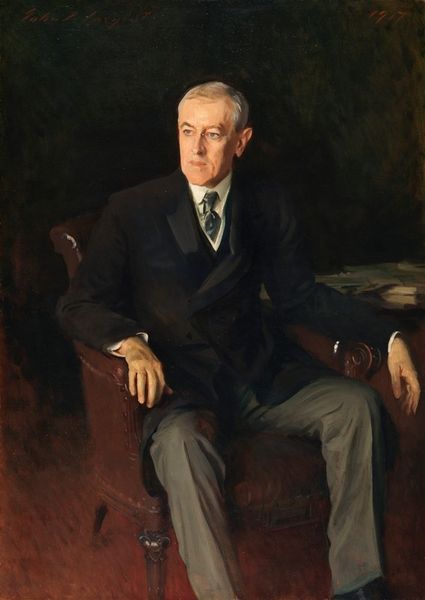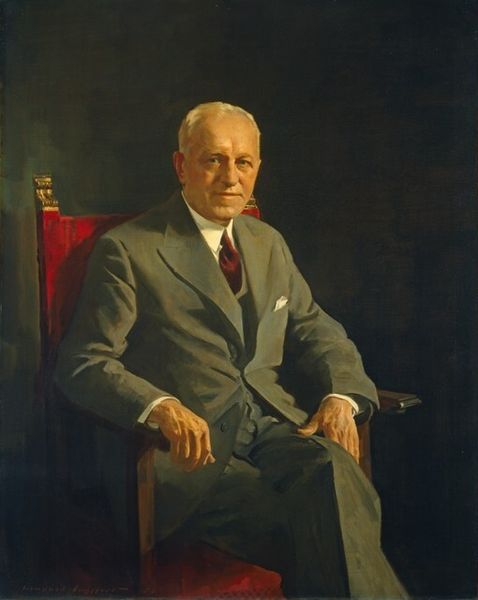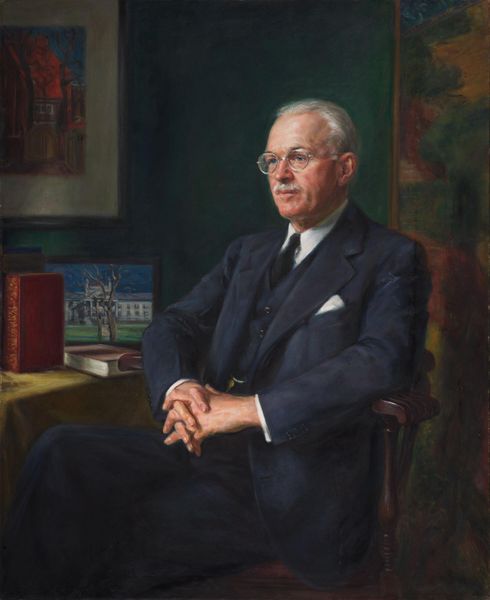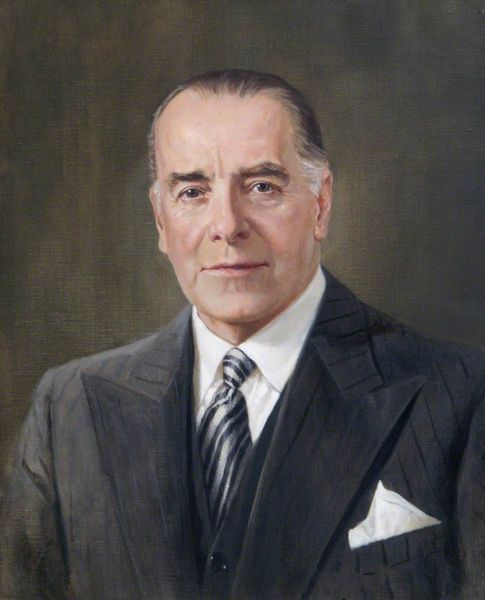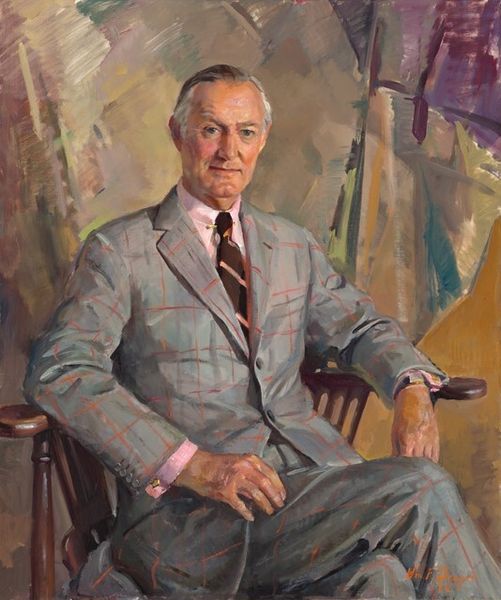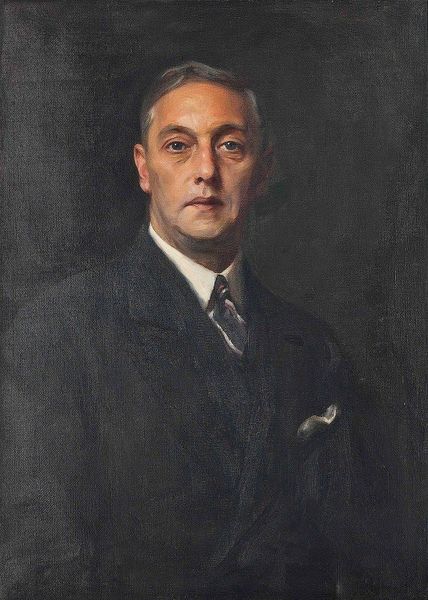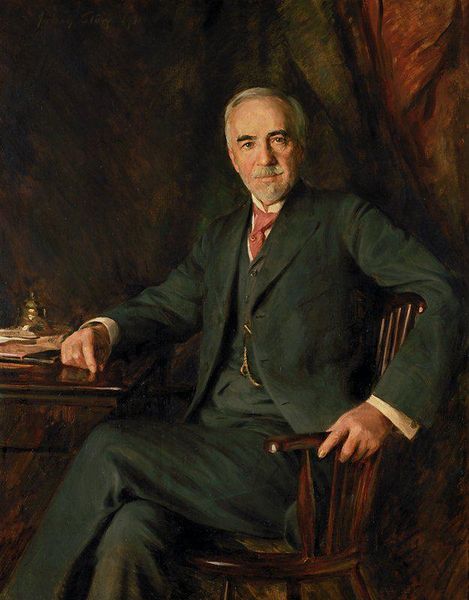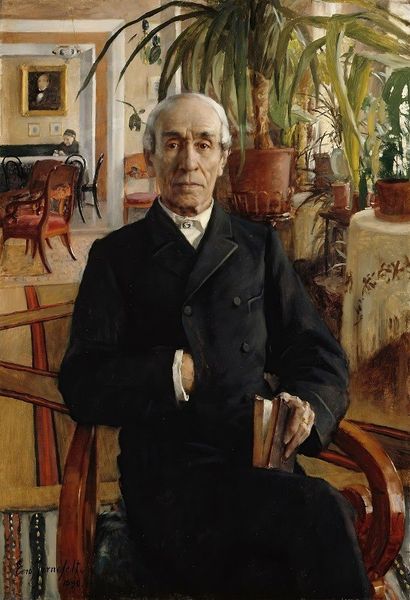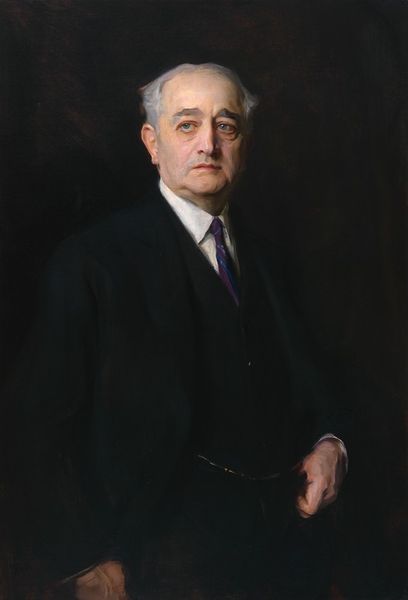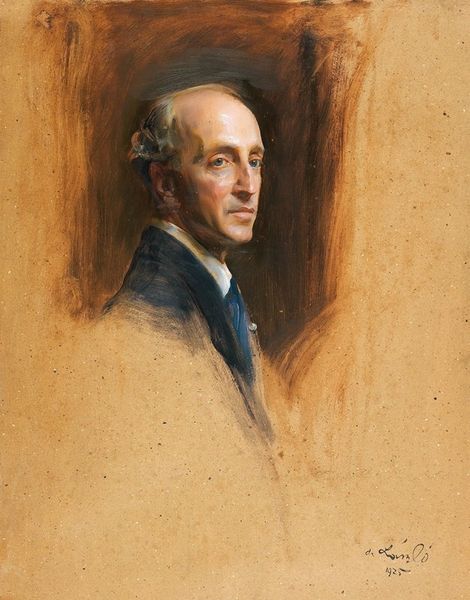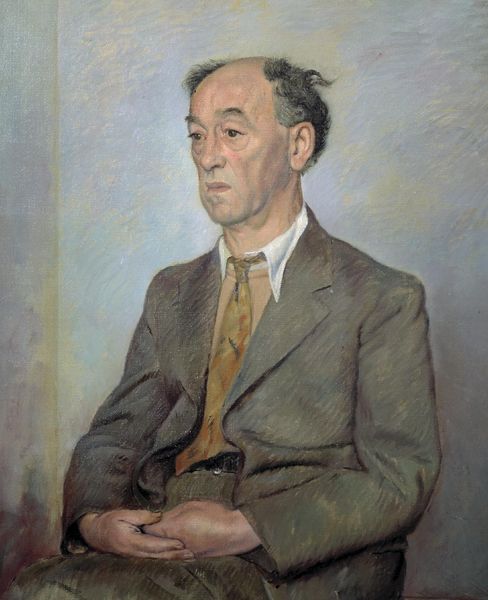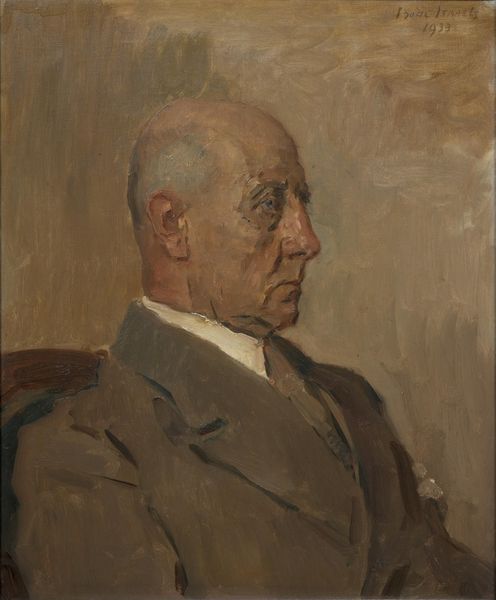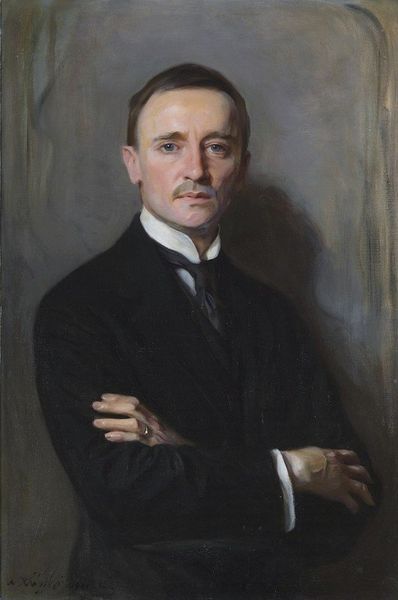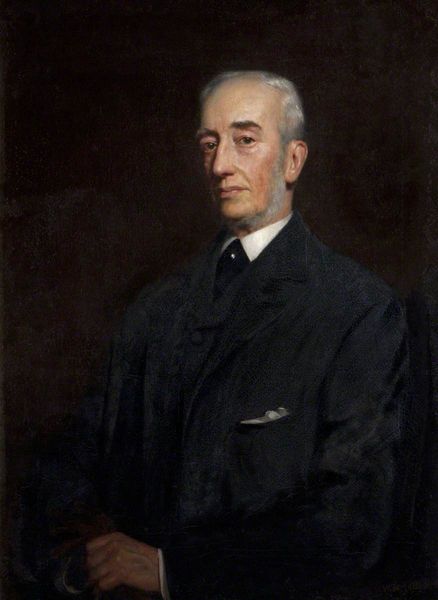
#
portrait subject
#
portrait reference
#
portrait head and shoulder
#
animal drawing portrait
#
portrait drawing
#
facial portrait
#
portrait art
#
fine art portrait
#
celebrity portrait
#
digital portrait
Dimensions: overall: 76.2 x 63.7 cm (30 x 25 1/16 in.)
Copyright: National Gallery of Art: CC0 1.0
Editor: We’re looking at "David E. Finley," a 1965 portrait by Bernard Hailstone. It seems very traditional. I’m struck by how the artist uses brushstrokes to create form, but the colors seem muted, creating a serious mood. What do you see in this piece? Curator: Observe the composition carefully. The figure is centrally located, with a shallow depth of field achieved through careful arrangement of light and shadow. The artist directs the eye toward the face, specifically the eyes, using subtle value contrasts and detail. Notice how the cool blues in the background provide an interesting juxtaposition against the warmer skin tones. Do you think this contrast emphasizes certain aspects of the sitter's persona? Editor: Possibly? I do notice that the colors of the background and his suit are almost the same tone. Does that contribute to the flatness of the composition? It makes his face stand out more by contrast. Curator: It could, yes, or it could also establish a sense of unity. Hailstone does this through tonal variation and texture; while there's not a great deal of contrast, the subtle gradations of color and the visible brushwork prevent it from appearing flat. Consider also how the geometric shapes of the suit are offset by the curves of the face and chair. It’s through the interplay of these formal elements that the artist achieves visual interest. What do you take away from Hailstone's execution? Editor: I hadn’t thought about the geometric vs. curved elements. Seeing that tension makes me appreciate the composition more. I'm understanding now how even seemingly simple portraits rely on intricate arrangements of form and color to create meaning. Curator: Precisely. The formal qualities create an aesthetic structure. The subject matter then adds another layer to what is being communicated.
Comments
No comments
Be the first to comment and join the conversation on the ultimate creative platform.
